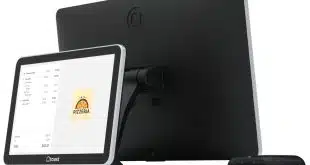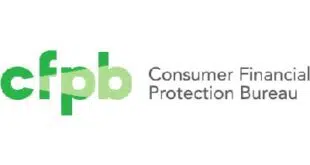By Jim Daly
n
After a string of news from Visa Inc. about partnerships with electronic funds transfer networks to facilitate debit transactions with chip cards, MasterCard Inc. got back in the game Thursday with the announcement that First Data Corp.’s Star network will use MasterCard’s so-called common application identifier (AID).
n
Coming just two days after processor Fidelity National Information Services Inc.’s NYCE network said it would use Visa’s common AID, the Star-MasterCard development makes clear the end game in what had been a raging controversy in the debit industry: All the major EFT networks are now using or seem likely to soon be using both the Visa and MasterCard common AIDs.
n
Visa has common AID agreements with the EFT networks that accounted for 99% of PIN-debit transaction volume in 2012, according to a Mercator Advisory Group study: NYCE, Star, Fiserv Inc.’s Accel, Discover Financial Services’ Pulse, its own Interlink PIN-debit network, and MasterCard’s Maestro. Visa and MasterCard mutually licensed each other’s common AIDs last summer.
n
With Accel, Interlink, and now Star in MasterCard’s camp, the momentum of the announcements that began Feb. 26 with the Visa-Star pairing foretells that MasterCard will strike deals with Pulse and NYCE. Carolyn Balfamy, executive vice president, product delivery/EMV at MasterCard, would not discuss specific companies but says: “We’re talking with many networks across the market.”
n
Barry McCarthy, president of First Data’s Financial Services unit, which includes Star, says the new MasterCard pact will help card issuers, merchant acquirers, and merchants get on with the business of issuing and accepting Europay-MasterCard-Visa (EMV) chip debit cards. “This agreement, and other EMV agreements we have recently announced, helps accelerate the migration to EMV adoption, and moves the entire industry a step closer to additional debit payment security,” McCarthy said in a news release.
n
The deals mean that banks and credit unions will be able to issue EMV cards that meet the requirements of the Dodd-Frank Act’s Durbin Amendment. The Federal Reserve Board’s 2011 rule implementing that amendment, which a three-judge federal appellate panel recently upheld, requires merchants to have access to at least two unaffiliated networks with each debit transaction. The Fed’s rule said a major brand such as Visa or MasterCard for signature debit as well as an unaffiliated network for PIN-debit transactions would fill the bill. But EMV technology was not designed for network choice and Visa and MasterCard are major owners of it, which makes implementing Durbin’s transaction-routing provisions much harder than with magnetic-stripe cards.
n
MasterCard and later Visa last year proposed solutions, but the EFT networks didn’t buy them, leading to extended discussions about operational and technology governance issues. Visa, MasterCard, and a group of 10 regional EFT networks proposed fixes last year that would enable processors to route EMV transactions while allowing at least two network brands to co-exist on the chip, relying on a common AID. Until recently, the 10 networks called the Debit Network Alliance opposed the international networks’ solutions, arguing they didn’t offer equal governance. But opposition began to fade when Star, one of the 10, broke ranks to license Visa’s solution.
n
Balfamy says reaching accords with EFT networks will help the debit card industry transition to chip cards at the same pace as the credit card industry, which does not face routing issues like those presented by the Durbin Amendment. “Top line, I would say [the Star-MasterCard agreement] is great news and further clear demonstration toward real solutions that allow the debit card market to move ahead simultaneously with credit EMV,” she says.
n
MasterCard estimates that among all the major brands there are a total of about 20 million chip cards in the United States. That means that the U.S., which has about 1 billion general-purpose credit and debit cards and is the last major mag-stripe holdout country, has just barely started its EMV conversion. So far, issuers have given most EMV cards to international business travelers. “That’s going to change rapidly,” Balfamy says. “Issuers are pivoting from issuing on a segmented basis to international travelers to issuing en masse to consumers.”





